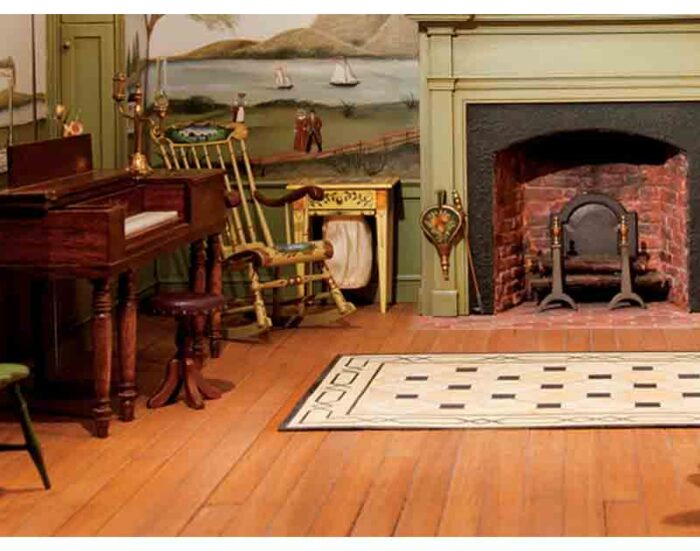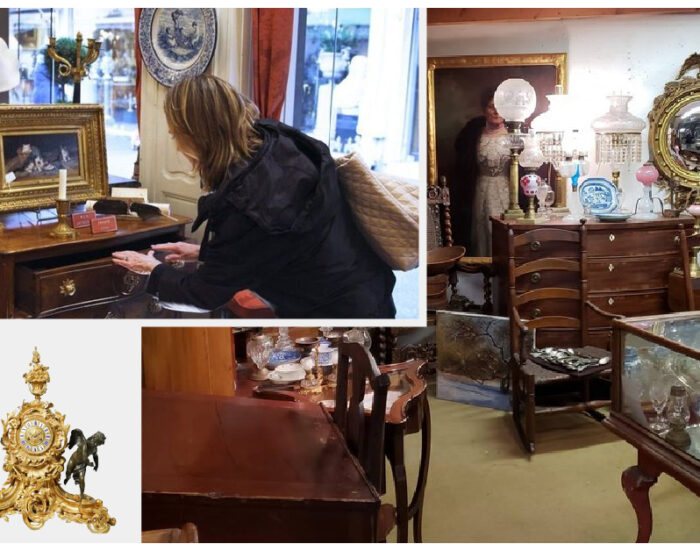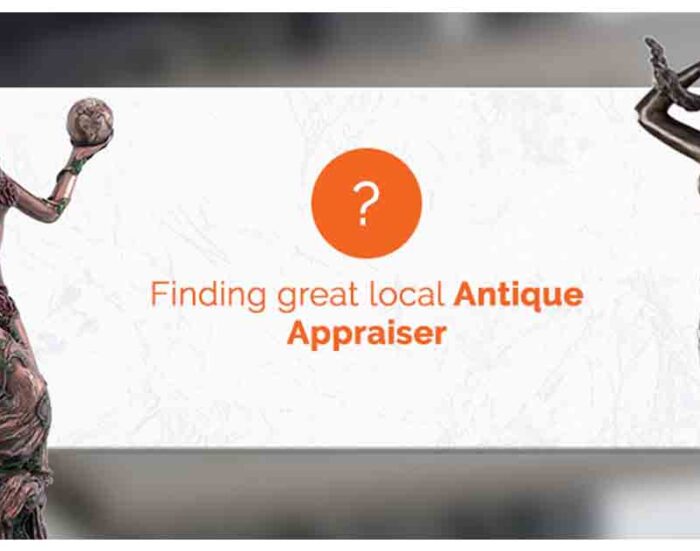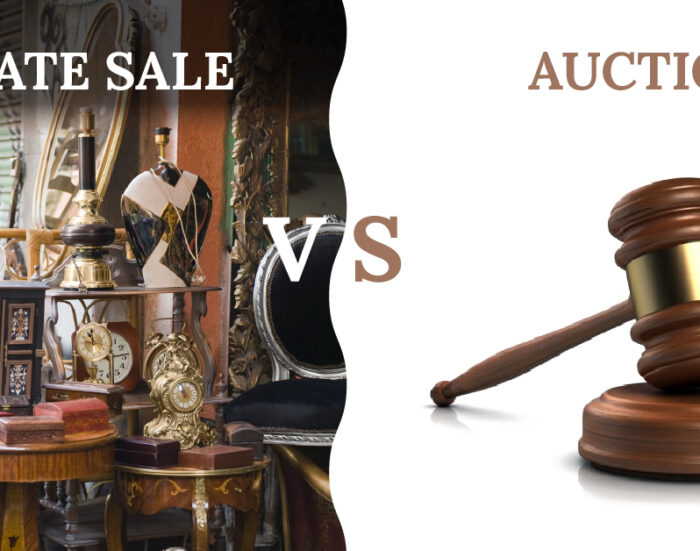Where Can I Sell American Furniture & Folk Art?
Are you looking to see some of your Antique American Furniture & Folk Art? Finding a great place to sell these items can be difficult because you want to make certain that whoever buys them will both appreciate what they’re getting and pay you what the pieces are worth. Those who aren’t antique collectors may not realize the value of the pieces you have and will try to lowball you on prices. That’s where working with antique auctioneers can give you an advantage.
Get an Appraisal First
Before you sell to someone, make sure you’ve had the item looked at by an expert. An American antique appraisal will let you know the value of the piece. This way, you won’t sell it for less than what it’s worth. While doing a private sell can work out, there are a couple of options that are often better.
Selling at Auction
Selling your pieces at an antique auction has a few advantages. While you will have to pay an auctioneer’s fee, you’re also likely to make more money here than you would doing a private sell to someone. That’s because the people at these auctions are antique collectors. They understand what the pieces are worth. If you have something that’s fairly rare or in outstanding condition, it’s possible it will spark a bidding war. That can result in selling an item for much more than you would in a private sale.
Selling to Appraisers
Some local antique dealers also purchase antiques to either resell or to sell at their own auctions. Again, these experts know what pieces are worth and will give you a fair price. They may already have a buyer in mind when they purchase your items, or they may believe they know several collectors who will bid on the item at an auction.
Questions to Inquire Before Hiring an Antique Auctioneer or Appraiser
Are you in need of professional antique appraisal services or an auctioneer for your antique collection or inherited estate? It’s essential to ensure that you’re working with an expert in the field who can get you the best value for your pieces. Before hiring an auctioneer or appraiser, there are several questions you should ask to ensure they’re the right expert for you.
# -1 Have They Appraised Similar Antiques?
Firstly, ask if they have appraised similar antiques before. Being an appraiser doesn’t automatically mean they have experience with the type of antiques you own. Practical experience is often more valuable than theoretical knowledge.
# -2 Are They Seasoned Antique Auctioneers?
Secondly, ensure that the antique auctioneers you’re working with are experienced and have connections with the antique collector community. This will help them bring in people who understand the value of your pieces and bid accordingly.
# -3 Do They Have A Good Reputation?
Thirdly, research their reputation online, talk to others who have had estate auctions, and ask any collectors you know. You can determine if this particular auctioneer or appraiser has a good standing in the community by doing so.
# -4 What Is Their Process?
Fourthly, ask about their process. For example, an appraiser may conduct a visual inspection of your pieces or ask for detailed photographs. An auctioneer may want to preview your items to determine if they’re appropriate for a particular auction or if they would do better in a specialized auction.
# -5 What Are Their Fees?
Fifthly, it’s important to ask about fees upfront. Understanding the fees involved can help you make an informed decision. Appraisers may charge a flat fee, an hourly rate, or a percentage of the item’s value. Auctioneers may charge a commission on the sale of the item, which can range from 10 to 20 percent or more.
# -6 What Are Their Qualifications?
Sixthly, ask about their qualifications. It’s crucial to work with someone who has the proper qualifications and credentials to appraise or auction your antiques. Appraisers may have certifications from organizations such as the International Society of Appraisers or the American Society of Appraisers. Auctioneers may be licensed by their state and have membership in professional organizations such as the National Auctioneers Association.
# -7 Can They Provide References?
Seventhly, asking for references from past clients can give you an idea of the professional’s experience and how they interact with clients. You can ask for references from similar estate auctions or appraisals to ensure they have experience in your specific area.
# -8 Can They Provide A Written Agreement?
Eighthly, Having a written agreement outlining the scope of work, fees, and timeline can help ensure both parties are on the same page. This agreement can also protect you from potential misunderstandings or disagreements down the road. It’s important to ask if the professional can provide a written agreement and review it carefully before signing.
In conclusion, hiring an antique appraiser or auctioneer can be a great way to ensure you get the most money for your antique collection or inherited estate. However, it’s important to do your research and ask the right questions to ensure you’re working with a qualified professional who has experience in your specific area of antiques. By asking about their experience, process, fees, qualifications, references, and written agreements, you can make an informed decision about who to hire for your antique appraisal or auction.
How to use the internet to research the value of Antique – Antique Appraisal Online
Trying to find the value of an antique online may seem like a good idea, but it’s harder than you might think. The first question you have to ask yourself is where to look. A search for American antique appraisal is going to return thousands of results. Even if you can narrow down the results by type of antique or by a brand name, you’re still going to get many different results. Some of these results may not agree with each other on the value, either. Here are some result types you may come across.
Online Auctions
While some antique sellers rely on local antique buyers for their income, others sell their items online. You may find auctions for items that are very similar to the ones you have. How accurate are those prices? It really depends. Some online sellers do work with reputable antique appraisers, but others may price their items higher or lower than their actual value.
Price Guides
You may also come across online price guides for antiques. These guides may be better than online auctions, but they often either provide a wide price range or assume the condition of the item. They can give you an idea of what your piece might be worth, but that price may not be accurate for a piece in poor condition or one that’s outstanding.
Online Appraisal
Your best bet if you’re using the internet is to look for sites that offer antique appraisal online. These estates auctioneers appraisers usually ask that you submit a number of clear photos of the antique and provide as much information as you possibly can about its condition and history. You’ll need images taken from multiple angles that show every side or part of the item. The appraiser will then send you back their official appraisal and any notes they have on the piece.
Best Antique Appraisers – Get Your Antiques Appraised At The Drop of a Hat
Finding great local antique appraisers isn’t always easy. You want to make certain that the appraiser you work with is knowledgeable, honest, and is readily available when you need them. There are many different appraisers out there who will give you an appraisal, but you want someone you trust. How can you tell who are the best antique appraisers?
They Have Experience
Antique appraisers need to have worked in the field for a number of years. Unlike some fields, there’s more to being an appraiser than what comes from a textbook. Great appraisers have seen hundreds of antiques and have learned how to spot fakes from the real deal. It’s one thing to read about the signs of a genuine antique, but it’s another to actually see all of the different ways an antique can be faked, damaged, or slyly repaired.
They Have Clientele
Appraisers who have a list of clientele willing to buy and sell from them (and often only them) have done something to earn the loyalty of these customers. That shows that they have a good reputation and are willing to go above and beyond simply doing American antique appraisal. They want to provide their clients with a fair value, excellent service, and an experienced, accurate appraisal for every piece they see. Many of these professionals work as estates auctioneers appraisers, too, and hold their own auctions.
They Offer a Free Verbal Appraisal
You shouldn’t expect to work with an appraiser without knowing what type of appraisal you’ll get. While reputation and experience can help you weed out appraisers who perhaps aren’t at the top of the industry, you still want to make certain the person you’re working with is going to provide you with the information you need about your antiques. A free verbal appraisal is the final way of evaluating a potential appraiser.
What is the difference between an estate sale and an auction?
Estate sales and auctions are two unique techniques for selling property from the estate of a deceased individual. While both serve the aim of liquidating assets, they differ greatly in the manner in which they are carried out, the amount of control over pricing and length, and the entire experience for both sellers and bidders. We’re going to go through these differences in depth so you can determine which choice is best for you.
1. Pricing Control:
• Estate Sale: An estate sale is typically managed by an estate sale company or professional. In this configuration, the firm is in charge of pricing each item based on their experience and market information. Prices are often determined before the start of the auction in order to maximize the total profit for the estate.
• Auction: In contrast, auctions are conducted by auctioneers or auction companies. Here, prices are not predetermined but instead determined by the competitive bidding process. Bidders compete to offer the highest price they are willing to pay, often leading to dynamic and sometimes unexpected outcomes.
2. Duration:
• Estate Sale: Estate sales are sometimes held over several days, usually over a weekend or more. Items’ prices may be gradually reduced during this time to increase sales. It allows interested purchasers to come to the sale at their discretion.
• Auction: Auctions are relatively short-lived events, usually lasting just a few hours. Bidders gather at a specific time, and the pace can be quite fast. Bids are accepted for a brief period on each item, with the price typically increasing as bidding continues.
3. Buyer Experience:
• Estate Sale: Buyers at estate sales can take their time examining items, asking questions, and making purchase decisions at their own pace. There is often room for negotiation or bargaining with the estate sale company or individual sellers.
• Auction: Auctions are known for their competitive atmosphere. Buyers engage in rapid bidding, often responding to the bids of others. It can be an exhilarating experience for some, but it may not allow for as much leisurely consideration as estate sales.
4. Unsold Items:
• Estate Sale: It is common for some items to remain unsold at the end of an estate sale. The estate owner can decide what to do with the items that don’t sell at the estate sale. They can give them to charity, sell them to another dealer, or get rid of them in some other way.
• Auction: Auctions tend to have a higher likelihood of selling all or most of the items offered. Sellers can make sure they don’t sell their items for too little by setting a reserve price or minimum bid for each item. It means the item won’t sell unless someone bids at least that amount.
5. Fees and Costs:
• Estate Sale: Estate sale companies typically charge a commission based on the total value of the items sold. The commission can vary but is often a percentage of the sales. Sellers may also incur advertising and setup costs.
• Auction: Auctions may charge a buyer’s premium, which is an additional fee added to the winning bid. The fee goes to the auction house. Sellers also have to pay a fee to the auction house, but it’s usually part of the final sale price. The fee depends on how much the item sells for.
In conclusion, both estate sales and auctions have advantages and disadvantages. Estate sales offer more control over pricing, a longer sales period, and a less competitive atmosphere. Auctions are more exciting and competitive than estate sales. You can bid on items and try to outbid others. It can increase the worth of the items, particularly if they are valuable. You should choose the option that works best for you, depending on what you want to sell, how much you want to make, and how you like to sell. At last, it is important to carefully weigh all of these factors and maybe talk to specialists in both fields to identify the best solution for your specific estate liquidation needs.





